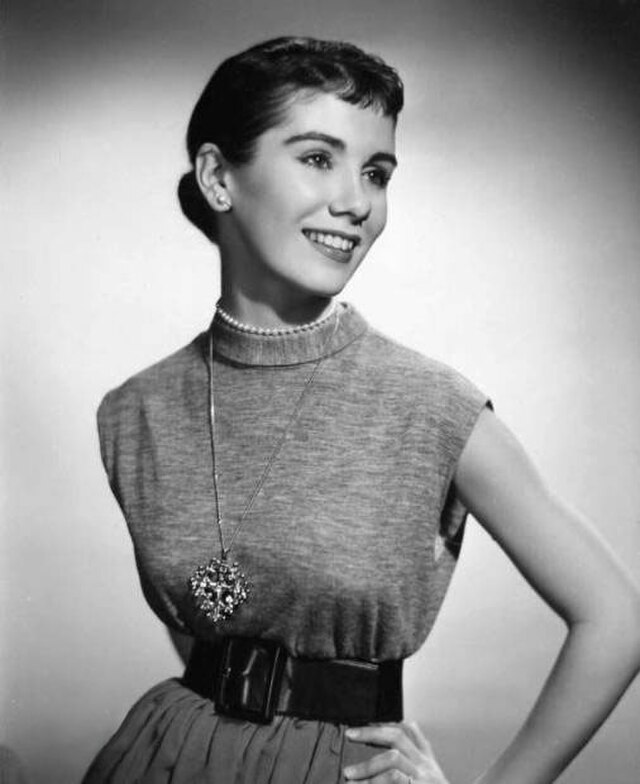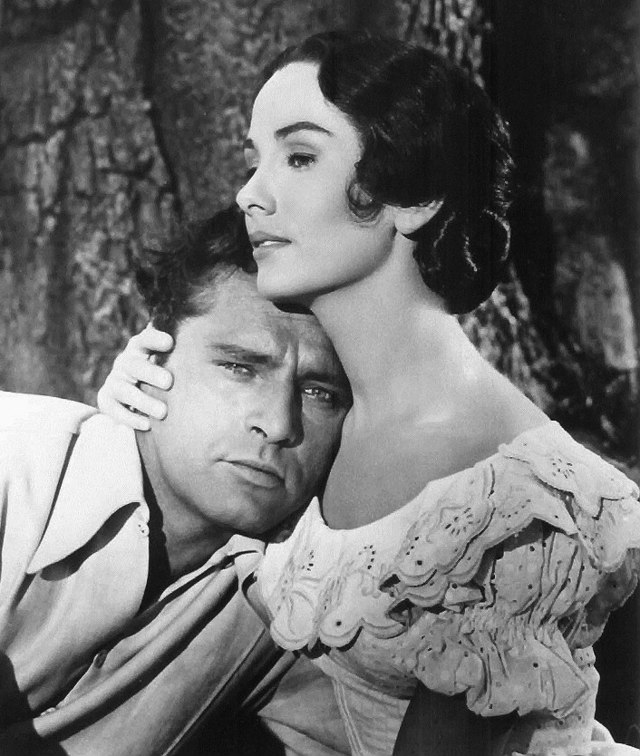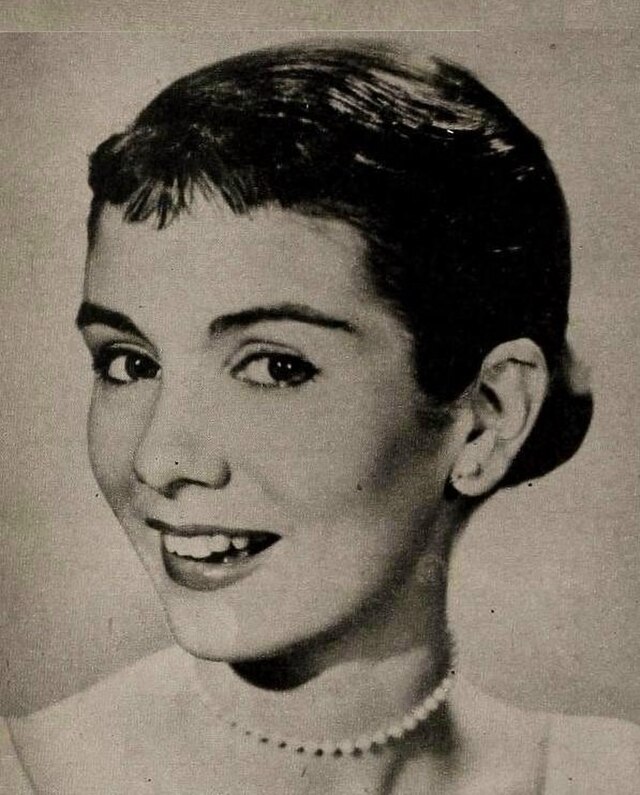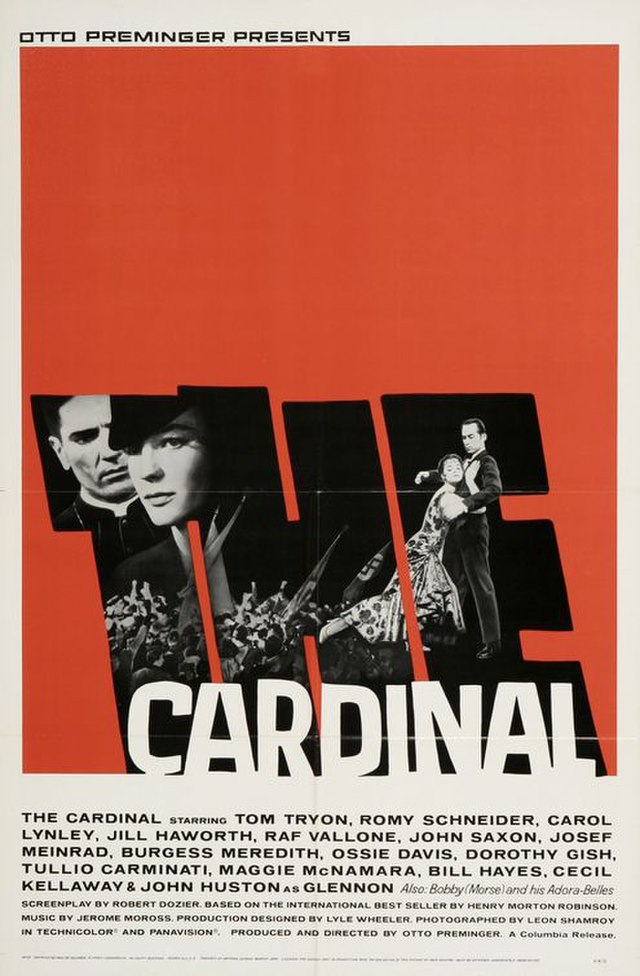Maggie McNamara
back| Full Name | Marguerite McNamara |
| Stage Name | Maggie McNamara |
| Born | June 18, 1928 |
| Birthplace | New York City, New York, U.S. |
| Died | February 18, 1978 |
| Buried | Saint Charles Cemetery, Farmingdale, Long Island, New York, U.S. |
| Married to | David Swift (married in 1951, divorced in 1957) |
| Children | None |
| Notable films | The Moon is Blue (1953) - Three Coins in the Fountain (1954) - Prince of Players (1955) - The Cardinal (1963) |
Maggie McNamara
The Quiet Rebel of Hollywood
Maggie McNamara was a talented American actress known for her brief but memorable Hollywood career in the early 1950s. She was born in New York City and began her career as a model before transitioning to acting. McNamara gained fame for her role in The Moon Is Blue (1953), a film directed by Otto Preminger, for which she received an Academy Award nomination for Best Actress.
McNamara struggled with personal issues, including depression, and after her career waned, she largely retreated from the public eye. Tragically, she died by suicide in 1978 at the age of 49.
Related
Maggie McNamara (1928 – 1978)
Biography ad Movie Career
Maggie McNamara was born Marguerite McNamara on June 18, 1928, in New York City. Raised in a traditional Irish Catholic family, she had two sisters and one brother. From an early age, McNamara showed a delicate beauty that would eventually lead her into modeling, but her start in life was relatively humble. As a teenager, she pursued a Catholic education, attending Catholic schools in Manhattan, and like many young women of the time, she dreamed of becoming something more than what society typically offered women in those days.
Path Towards Success
McNamara’s striking looks caught the attention of modeling agents, and by the late 1940s, she was working as a successful model in New York. Her face graced the covers of popular magazines like Vogue, and she became one of the most sought-after models of her time. But despite her success in modeling, she harbored ambitions beyond the runway. McNamara enrolled in acting classes, yearning to make a name for herself in the world of theatre and film.
Her big break came when she was cast in a Broadway production of The Moon Is Blue, a romantic comedy written by F. Hugh Herbert. Her performance on stage as Patty O'Neill caught the attention of director Otto Preminger, who had a talent for spotting potential stars. When Preminger adapted the play into a film in 1953, he cast McNamara in the lead role, a decision that would change her life.
Hollywood Stardom
The Moon Is Blue (1953) was a controversial film for its time, primarily because of its candid dialogue about sex, which was considered risqué by 1950s standards. The film was denied approval by the Motion Picture Production Code due to its frank discussion of virginity and seduction, but despite this—or perhaps because of it—it became a box-office hit. McNamara’s portrayal of the innocent yet headstrong Patty O'Neill earned her widespread recognition and an Academy Award nomination for Best Actress.
Her success in The Moon Is Blue propelled her into the spotlight, and she followed it with another notable role in Three Coins in the Fountain (1954), a romantic drama set in Rome. The film, a commercial hit, solidified her status as one of the rising stars of the 1950s. Her next major film, Prince of Players (1955), was well-received, but after these early successes, McNamara's career took an unexpected downturn.
Personal Life and Marriage
In 1951, Maggie McNamara married David Swift, a television writer and director. Their relationship was turbulent, and they divorced in 1957. The marriage was childless, and McNamara reportedly struggled with the pressures of Hollywood life, as well as the dissolution of her marriage.
While she was talented and driven, McNamara was also known to be shy, introspective, and uncomfortable with the fame that came her way. Unlike many of her peers who sought the limelight, she preferred privacy, which made her a somewhat elusive figure in the Hollywood social scene. She didn’t relish the spotlight, and as her career began to falter, her personal struggles deepened.
Career Decline
After her initial successes, McNamara found it difficult to secure leading roles. Hollywood was notoriously unforgiving, especially toward actresses who were not willing to conform to its demands. She turned to television for work in the late 1950s and early 1960s, appearing in episodes of The Twilight Zone and The Alfred Hitchcock Hour. Despite these efforts, her career never regained the momentum it had in the early 1950s.
As her acting roles dwindled, McNamara became increasingly reclusive. She largely withdrew from public life and worked sporadically as a typist to support herself. Her retreat from the film industry was partly due to her own personal disillusionment with Hollywood, but also because of the limited roles offered to her as she aged. The film industry in that era was notoriously harsh on women, and McNamara’s quiet nature and unwillingness to engage in self-promotion didn’t help her career prospects.
Passions and Personal Struggles
While McNamara is most remembered for her film work, she was deeply passionate about literature and writing. In her later years, she reportedly focused on writing screenplays, though none of these were ever produced.
Sadly, McNamara struggled with depression throughout much of her life. The combination of her fading career, failed marriage, and disillusionment with the entertainment industry took a heavy toll on her mental health. In the 1960s and 1970s, she largely disappeared from the public eye, living in near obscurity in New York City. Her battles with mental illness were compounded by the isolation she experienced after stepping away from acting.
Death
On February 18, 1978, at the age of 49, Maggie McNamara died by suicide in her apartment in New York City. She had overdosed on barbiturates. Her death was a tragic end to a life marked by early success and immense potential, which was never fully realized. Her suicide left many to reflect on the often unforgiving nature of Hollywood, particularly for women of her era.
Legacy
Though her film career was brief, McNamara remains a poignant figure in Hollywood history, remembered for her ethereal beauty and quiet strength as an actress. Her role in The Moon Is Blue broke ground in Hollywood at a time when sexual topics were largely taboo, and her Academy Award nomination for that film stands as a testament to her talent. Yet, her life also highlights the darker side of fame and the personal cost of early success.
In death, McNamara became something of a tragic figure, emblematic of the challenges faced by many women in Hollywood, particularly those who didn’t fit the mold of the larger-than-life starlet. Today, she is remembered as a brilliant but fragile actress whose life ended far too soon.
Video Documentary on Maggie McNamara
Graceful Acting Style of Maggie McNamara
Maggie McNamara's acting style was a unique blend of grace, subtlety, and naturalism, which set her apart from many of her contemporaries in Hollywood during the 1950s. At a time when larger-than-life performances and glamorous personas often dominated the silver screen, McNamara brought a quieter, more introspective approach to her roles, allowing her to stand out as an actress who conveyed depth with minimal gestures.
Natural and Understated
McNamara's acting was marked by a refreshing simplicity and directness. She avoided theatrical flourishes or melodramatic overacting, instead relying on subtle facial expressions, body language, and a calm presence to communicate her characters' emotions. This naturalistic approach made her performances feel relatable and grounded, creating an intimate connection with the audience.
In The Moon Is Blue (1953), for example, McNamara played the role of Patty O'Neill, a strong-willed yet innocent young woman navigating romantic advances. Her portrayal of Patty’s innocence and charm was free from the overly coy or flirtatious performances that were common at the time. Instead, McNamara infused the character with an authentic vulnerability and intelligence, capturing the complexity of a woman holding onto her values in a world that often challenged them. Her delivery of dialogue was effortless, with a rhythm that made her lines feel conversational rather than rehearsed.
Soft-Spoken, Yet Assertive
Although McNamara’s characters often appeared demure or soft-spoken, her performances had a quiet assertiveness. She imbued her roles with a sense of inner strength and independence, even when playing characters with an innocent or naive exterior. Her ability to balance vulnerability with resilience made her characters multidimensional, particularly in romantic situations where traditional female archetypes were more submissive or overly dependent on male characters.
In Three Coins in the Fountain (1954), McNamara's role as Maria Williams showcased her ability to portray a woman who, despite her romantic aspirations, retained a sense of self-determination. Her understated performance communicated the tension between longing for love and maintaining personal dignity. This was a subtle, nuanced strength—never loud or commanding, but undeniably present.
Intellectual Presence
One of McNamara’s defining traits as an actress was her intellectual aura. Her characters often exuded intelligence and wit, reflecting McNamara’s own sharp mind. Whether playing a romantic lead or a supporting role, she brought a cerebral quality to her performances, lending her characters a sense of purpose and reflection. In The Moon Is Blue, this was particularly evident in her delivery of quick-witted and self-aware dialogue, which made her character both charming and formidable.
This intellectual quality also allowed her to navigate controversial material with grace. Despite the provocative nature of The Moon Is Blue, McNamara's portrayal of a young woman discussing sexual topics was neither coquettish nor overtly sensual, but rather matter-of-fact and grounded. Her performance elevated the material, lending it sophistication and class, despite the film’s then-scandalous subject matter.
Expressive without Overacting
McNamara’s ability to express a wide range of emotions without overacting was one of her greatest strengths. In a time when actresses often relied on dramatic gestures or exaggerated facial expressions, McNamara had a talent for conveying emotion with subtlety. A tilt of her head, a brief glance, or the softening of her voice would often be enough to communicate complex feelings. This minimalist approach allowed her performances to feel sincere and unforced, resonating more deeply with the audience.
For example, in Prince of Players (1955), her portrayal of Mary Devlin—wife of the troubled actor Edwin Booth—was filled with quiet empathy. Rather than overwhelming the viewer with displays of affection or distress, McNamara used small, intimate moments to express her character’s love and support for her husband. It was through this measured delivery that she conveyed the depth of her characters' emotions, never tipping into melodrama.
Vulnerable Yet Confident
Another key aspect of her acting was her ability to project vulnerability without losing confidence. McNamara often played characters who were at a crossroads—whether it was emotional, moral, or romantic—and her performances delicately balanced the uncertainty of these moments with an underlying self-assurance. Even when her characters were unsure of what to do next, McNamara played them as women who were fundamentally in control of their own destinies.
This was especially true in The Moon Is Blue, where her character Patty is faced with the romantic advances of two men. Instead of portraying Patty as a passive object of desire, McNamara gave her agency. She played Patty as a woman fully aware of her power and the effect she had on others, but who chose to remain true to herself. This mix of vulnerability and confidence was rare for female characters at the time, and McNamara’s portrayal remains one of the film’s most memorable aspects.
Timeless Elegance
McNamara’s physical presence on screen also contributed to her unique acting style. While she was undeniably beautiful, her beauty was understated and timeless, free from the overt glamour that defined many of her contemporaries. This elegance translated into her performances, where she often embodied a quiet, classic femininity. Her characters were never flashy or attention-seeking, but rather elegant in their restraint.
Emotional Depth Beneath a Calm Surface
At her best, McNamara could convey deep emotional conflict beneath a calm exterior. This quality was especially effective in roles where her characters struggled with internal dilemmas or societal pressures. Her performances often revealed layers of complexity—moments where a character might be experiencing a whirlwind of emotions inside while remaining composed on the surface.
Quotes from Maggie McNamara
Memorable Quotes from Films:
From The Moon Is Blue (1953):
- "I’m a professional virgin."
This line became particularly famous because of its direct, somewhat shocking nature in the context of 1950s Hollywood. It exemplified the groundbreaking dialogue of The Moon Is Blue, which dealt with sexual topics more openly than many films of the time.
- "I don’t want to be married. I want to be single and free."
This line from The Moon Is Blue encapsulated the independent and modern perspective of McNamara’s character, Patty O'Neill, who was atypical for her time in her insistence on self-determination.
- "Is it wrong for me to think that men can be friends with women without trying to sleep with them?"
Another forward-thinking line from The Moon Is Blue, illustrating her character’s strong will and progressive outlook on male-female relationships.
Personal Reflections:
While Maggie McNamara did not have a long career in the public eye, she did express some personal views in interviews during her brief period of stardom. Here are a few of her reflective thoughts:
- "I don’t like being a star. It’s too much for me. I want to be an actress, not a personality."
McNamara’s introspective nature and discomfort with the pressures of stardom are reflected in this quote. She was known to prefer a quieter life and struggled with the attention that Hollywood brought her.
- "Fame is a funny thing. People think they know you, but they don’t."
This quote reflects her complex relationship with fame, which she found challenging despite the success it brought her early in her career.
Awards and Recognition
Academy Award Nominations:
- 1954 – Best Actress in a Leading Role for The Moon Is Blue
Maggie McNamara received an Academy Award nomination for her performance in The Moon Is Blue. This nomination was a significant achievement, particularly because her role in the film was her debut in Hollywood. The film was controversial for its time due to its frank discussion of sexual themes, making McNamara's nomination even more remarkable.
Golden Globe Nominations:
- 1954 – Best Actress in a Motion Picture – Comedy or Musical for The Moon Is Blue
McNamara was also nominated for a Golden Globe Award for her role in The Moon Is Blue. The film’s success in the comedy genre and her portrayal of the witty, independent Patty O'Neill earned her a nomination for Best Actress in the Comedy or Musical category.
BAFTA Awards:
- 1955 – Most Promising Newcomer to Film
McNamara was nominated for the BAFTA Award for Most Promising Newcomer for her role in The Moon Is Blue. This nomination further highlighted her growing international reputation as a talented actress.
Venice Film Festival:
- The Moon Is Blue (1953) – Although McNamara did not win any specific individual acting awards at the Venice Film Festival, The Moon Is Blue was selected for competition and was a major talking point at the festival due to its controversial subject matter. The film’s presence at Venice raised McNamara's profile in the international film community.
Other Recognition:
- Critical Acclaim: McNamara’s performance in The Moon Is Blue earned widespread critical acclaim. Her ability to convey innocence while tackling more adult themes was praised, and her naturalistic acting style was lauded as fresh and modern for its time.
- Popular Recognition: Despite her relatively short career, Maggie McNamara’s roles, particularly in The Moon Is Blue and Three Coins in the Fountain, garnered her considerable attention from the public. She became known as one of the promising young stars of the early 1950s.
Summary of Awards and Nominations:
- Academy Award: 1 nomination (Best Actress for The Moon Is Blue)
- Golden Globe Award: 1 nomination (Best Actress for The Moon Is Blue)
- BAFTA Award: 1 nomination (Most Promising Newcomer to Film)
- Venice Film Festival: The film The Moon Is Blue was entered into competition
Movies featuring Maggie McNamara:
The Moon Is Blue (1953)
Synopsis: Directed by Otto Preminger, this romantic comedy follows the story of Patty O'Neill (Maggie McNamara), an independent young woman who meets two charming men—an architect named Donald Gresham (William Holden) and a cynical older playboy named David Slater (David Niven). Both men are attracted to Patty's honesty and her insistence on maintaining her virginity. The film is notable for its frank discussion of sexual themes, which was controversial at the time. McNamara's performance earned her an Academy Award nomination for Best Actress.
Three Coins in the Fountain (1954)
Synopsis: This romantic drama, directed by Jean Negulesco, tells the story of three American women living in Rome who throw coins into the city's famous Trevi Fountain, each hoping for a different romantic outcome. Maggie McNamara plays Maria Williams, one of the women, who hopes to find love with her employer, an Italian prince. The film is famous for its stunning shots of Rome and won two Academy Awards for Best Cinematography and Best Original Song ("Three Coins in the Fountain").
Prince of Players (1955)
Synopsis: Directed by Philip Dunne, this historical drama is based on the life of Edwin Booth (played by Richard Burton), a famous 19th-century actor and the brother of John Wilkes Booth, Abraham Lincoln’s assassin. Maggie McNamara plays Mary Devlin, Booth’s wife, who supports him through his professional and personal struggles, including his complicated relationship with his infamous brother. The film focuses on Booth's rise to fame and the challenges he faces after his brother's actions.
The Cardinal (1963)
Synopsis: Directed by Otto Preminger, this epic drama chronicles the life of Stephen Fermoyle (played by Tom Tryon), a young American Catholic priest who rises through the ranks of the church to become a cardinal. Maggie McNamara plays a minor role as Fermoyle’s sister, Florrie Fermoyle. The film touches on various themes, including racial tension, the Nazi regime, and the role of religion in addressing social issues. The Cardinal was critically acclaimed and earned multiple Academy Award nominations, though McNamara’s role was much smaller compared to her earlier films.




